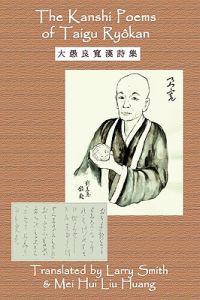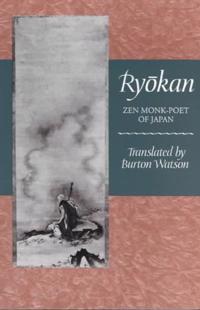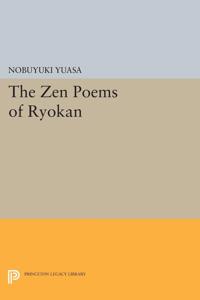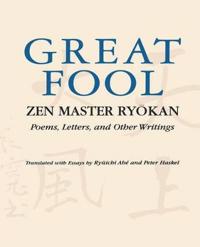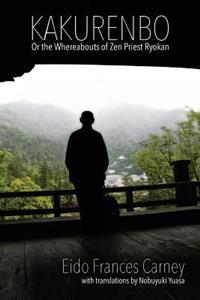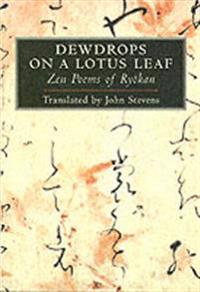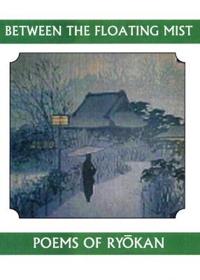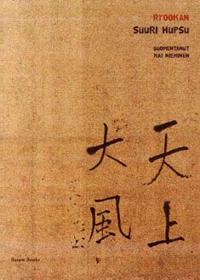The Kanshi Poems of Taigu Ryokan (Pocket)
avTaigu Ryokan, Mei Hui Liu Huang, Larry Smith
ISBN: 9781933964256 - UTGIVEN: 200902Ryokan
ISBN: 9780231044158 - UTGIVEN: 1992-02Ryokan (1758-1831), a Buddhist monk in the Zen sect, was a major figure in Tokugawa poetry. Although a Zen master, he never headed a temple but chose to live alone in simple huts and to support himself by begging. His poems are mainly a record of his daily activities - of chores and outings to gathe[...]
The Zen Poems of Ryokan (Pocket)
avNobuyuki Yuasa
ISBN: 9780691614984 - UTGIVEN: 2014-07A poet-priest of the late Edo period, Ryokan (1758-1831) was the most important Japanese poet of his age. This volume contains not only the largest English translation yet made of his principal poems, but also an introduction that sets the poetry in its historical and literary context and a biograph[...]
Kakurenbo: Or the Whereabouts of Zen Priest Ryokan (Häftad)
avEido Frances Carney
ISBN: 9780985565114 - UTGIVEN: 2013-08Ryokan
ISBN: 9781462908332 - UTGIVEN: 2015-06With over 180 color photographs and extensive commentary, this book showcases the beauty of Japanese inn, or ryokan.Featured are both old and new-from inns with a history dating back a thousand years to modern inns with the latest facilities that nonetheless capture the spirit of old Japan. Each of [...]
Between the Floating Mist (Pocket)
avRyokan, Dennis (TRN) Maloney, Hide (TRN) Oshiro
ISBN: 9781935210054 - UTGIVEN: 2009-04Ryokan (1758-1831) was a poet, master calligrapher, Zen hermit, and is one of the most beloved poets of Japan. Instead of becoming the head of a Zen temple, he preferred the simple and independent life of a hermit. Ryokan's poetry is simple, direct, and colloquial in expression.[...]
Suuri hupsu (Häftad)
avRyokan
ISBN: 9789522601148 - UTGIVEN: 201210Japanilainen zen-munkki ja runoilija Ryokan (1758-1831) käytti itsestään nimitystä Taigu, Suuri hupsu. Hän oli perin viisas ja lempeä hupsu: seurallinen erakko, lasten leikkitoveri, kyläläisten juomaveikko, ujo naisten ihailija. Suurimman osan elämästään Ryokan eli kerjäläismunkkina sy[...]

